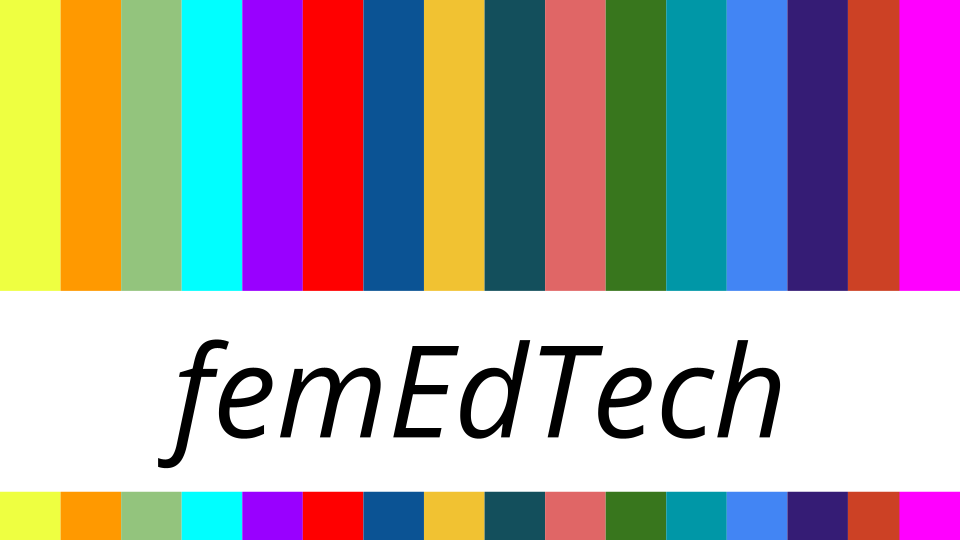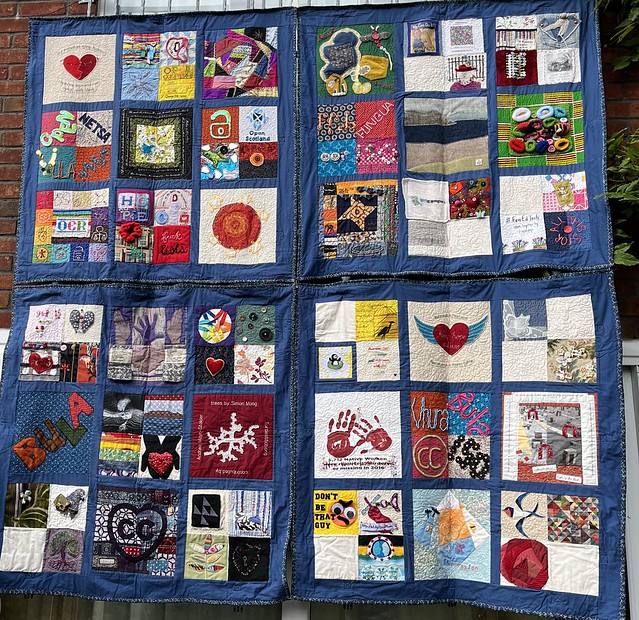Big news! FemEdTech is delighted to announce that the FemEdTech Quilt of Care and Justice in Open Education will be on display at the ALT Conference in Manchester on Wednesday, September 7th, 2022. Given the consistent support that ALT has provided to FemEdTech and the FemEdTech Quilt project, it seems fitting that the quilt will be on public display for the first time at the ALT Conference. Please check the hashtags #FemEdTechQuilt and #altc for further updates.
Whether you plan to attend the ALT Conference or not, all are invited to an informal, online, pre-conference session on Friday, September 2nd at 2pm (UK). This will be an opportunity to learn more about the FemEdTech network, to share what you have been up to, and to reflect on the past two years. We will talk a bit about the FemEdTech Quilt and explore how you get can (more) involved in FemEdTech activities, but this is primarily a social get-together. Everyone is welcome to this session, which is free to attend (details here).
If you’d like to read more about the FemEdTech Quilt, we include some information below…
…
The FemEdTech Quilt of Care and Justice in Open Education was a craft activism project led by Frances Bell in collaboration with members of the FemEdTech network in 2019/2020. FemEdTech is a reflexive, emergent network of people learning, practising and researching in educational technology, and committed to feminism and social justice. We are an informal organisation with no funding: our resources are our passion, kindness, knowledge, enthusiasm and volunteer time.
Ideas for a FemEdTech Quilt emerged following the 2019 OER Conference (OER19) and took further inspiration from the themes of OER20: The Care in Openness, particularly around care, criticality and sustainability. An open call was issued along with the OER20 Conference call for proposals, inviting all sewists and non-sewists, artists and dabblers, crafters, makers and writers, to contribute to the quilt by donating fabrics and found objects, creating quilt squares, and/or writing stories and reflections.
The project was originally intended to have three parts:
- The preparation and assembly of a quilt linking themes of social justice and open education, making a contribution to activism in these areas.
- The creation of a digital archive of the elements, components and finished quilt that becomes a shareable artefact and repository in its own right.
- The completion of the quilt at a workshop at the OER20 conference, where it would be displayed in its material and digital forms.
There was an overwhelming response to the invitation to contribute to the quilt, with 67 six-inch and 17 twelve-inch squares being sent in from around the world, along with fabrics and other artefacts. As contributions arrived, the quilt grew in size from a single artefact to four linked quilts, each assembled by Frances Bell, Suzanne Hardy, and a group of volunteer quilters and sewers in Macclesfield, UK.
A corresponding digital quilt was created by Anne-Marie Scott at https://quilt.femedtech.net/. This enabled contributors to reflect on the process of creating their quilt squares and to tell the stories behind them. The digital quilt was also intended to allow those who were unable to attend the OER20 Conference in person to see and explore the quilt and its stories.
In the optimistic days of early 2020, when beautiful creative quilt squares were being sent in from all over the world, we could not have foreseen the advent of the global pandemic and the impact it would have. At the same time, we could not have imagined just how necessary the FemEdTech Quilt would become as a project of hope in those dark days as the threads of our shared labour wove the FemEdTech community together.
With the advent of the pandemic, the theme of OER20, The Care in Openness, could not have been more timely or prescient. ALT rapidly moved the conference online and lifted the registration fee, enabling over 1000 participants to come together from all over the globe. Although the pandemic initially deprived us of the opportunity to experience the physical artefact of the quilt, it became a powerful material manifestation of care, compassion and activism. Frances produced and presented a beautiful film about the making of quilt for OER20, which resulted in an upswell of collective emotion that, like the quilt itself, was “beautifully imperfect, imperfectly beautiful.” In the words of Su-Ming Khoo, the quilt became “somewhere to put our connection and our gratitude”.
The FemEdTech Quilt of Care and Justice continues to stand as a powerful symbol of the strength and solidarity that can be gained from shared labour, the sense of community and belonging that traditionally derives from women’s work, and the power of craft activism.
Link to header image of four quilts together:




The four quilts together almost look like a mega quilt of quilts, each one a square in something bigger. I cannot say how much in awe I am of what you and everyone has done here, and this ranks as maybe one of the best stories of openness that has nothing to do with content or resources.
Viva craft activism!
Thanks Alan. You , and SPLOTs, are important parts of the ensemble of humans and nonhumans that is the FemEdTech quilts assemblage